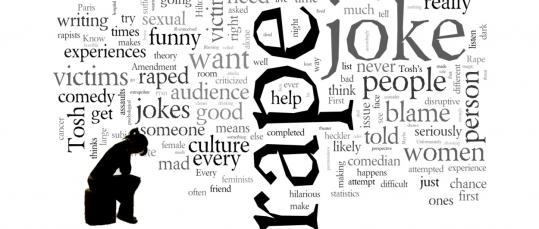(This piece contains a content warning for anti-semitic commentary present in some of the links and images)
Anyone tuned into the YouTube community who hasn’t been living under a rock in the last two weeks is aware of the current controversy surrounding Disney and YouTube pulling their support for popular streamer and online star PewDiePie. The Swedish internet personality has come under fire for a number of stunts that have led to him being accused of anti-semitic behaviour by everyone from commenters under his videos to the Wall Street Journal.
The video in question (since taken down from the channel and reuploaded by other enterprising Youtubers) involves PewDiePie, aka Felix Kjellberg, investigating the properties of a service called Fiverr, a website which allows people to, in Kjellberg’s words, “get anyone to do anything for five dollars.” In the fashion of his usual style, Kjellberg set out to take a look at what kinds of things he could get various strangers on the internet to do for five dollars, and the thirteen minute video details all of the things he managed to do. One of the things he commissioned was directed at two men from India who advertised their service as “I will paint your message on my body and dance in the jungle”. So, for five dollars, PewDiePie sent them the text of a message, which he typed into a textbox, and then submitted for them to display in a video.
I’m giving all of this detail because I’m trying to make the course of events as abundantly clear as possible, and the way this went is” PewDiePie wrote out a message for these two men to display on a sign in their video.
And the message in question was ‘Death to all Jews.’
Kjellberg’s reaction is available in the video, and his shock at the words on the sign appears to be genuine. He immediately states his surprise and his apology for the content, and he insists that he “didn’t think they would actually do it.” Since then, the two men in the Fiverr video have also issued an apology, stating they did not know what the sign meant, and their Fiverr account, which had been suspended, was reinstated. The source of the controversy is evident, but, of course, the mayhem did not stop there, as other Youtubers came out in support of Kjellberg’s work, and criticized Disney and Youtube for ceasing to do business with him.
The news media, including the aforementioned Wall Street Journal, reported on the incident, and in the wake of this, PewDiePie issued an eleven minute video response. In this video, his focus is on the behavior of the news media, and it’s this reaction I really want to unpack from a rhetorical perspective, as I find myself wont to do as a scholar of argumentation and persuasive address.
Kjellberg begins his response video with an appeal to his own credibility, highlighting that the tone of this upload is meant to be more serious, constructed with minimal amateur comedy and jumpcuts, as is characteristic of the rest of his videos. In this way, he makes it clear that it’s Felix Kjellberg, not PewDiePie, addressing the situation. And he addresses this situation by focusing his video on the actions and reactions of the mainstream media. He posits that the Wall Street Journal and other major media conglomerates don’t understand how YouTube works, and that their focus on him has always been more related to his financial worth over his creative projects. He accuses the media, the WSJ in particular, of misrepresenting him, and of failing to report anything newsworthy at all, refusing to contact him for comment and taking his prior anti-semitic remarks and jokes out of context in order to approach Disney and YouTube and force them to cut ties with him.
To clarify, yes, Kjellberg states specifically that the reasons Disney and YouTube broke off their contracts with him was because of pressure from the media and the Wall Street Journal in particular. Not because of his actions. Because of his being misrepresented by the press.
Kjellberg believes the media has gone out of their way to discredit him, decreasing his influence and net worth. His apologies for his actions lie heavily in a kind of “I’m sorry that you’re offended” style of rhetoric that places the failing in the scenario on the viewer, not the creator. His claims of a framing device for the Fiverr video, that his intent was to show the stupidity of the website and how far he could push a joke, only become apparent in hindsight, and are unclear to the casual viewer.
I mention the casual viewer here because in the wake of a scandal like this, having the context of a seasoned watcher of PewDiePie’s works does not actually make a difference in this respect. Regardless of his previous actions in other videos, someone watching this video of the Fiverr incident does not see any clear instance of him stating that his intention is to see how far he can take the joke. That comes later, after the apologies, in the response video. Kjellberg says in his video that it’s okay to disagree with another person’s sense of humor, and that despite being offensive, he means well. He refers to himself as a rookie comedian (though his experience as a YouTuber would indicate otherwise: he has six years under his belt), but this is not the first time he’s come under fire for offensive content, anti-semitic material, or lackluster response. He refers to himself as a number of things, but the fact that his reaction focuses on the actions of others says more than his referrals ever can.
I’m not here to join in the “SJW media” lambasting of an internet celebrity, merely to point out some of the issues with Kjellberg’s choice to point his finger at the mainstream media in the wake of his colossal screw up. Yes, he apologized, several times, on multiple platforms, and his remorse is genuine in the video, but the issue of it all absolutely comes down to choice.
Kjellberg makes a point in his reaction video to emphasize that he is just one guy. He doesn’t have a producer or a writer doing the work for him, he’s just one dude with a microphone trying to entertain. And what that means is, he had a choice in all of this. He chose to make a joke, with minimal context, involving having two strangers on website hold up a sign that said ‘Death to All Jews’. He chose those words. He chose to send them. He also chose to edit his reaction, and theirs, into his video. Yes, his remorse looks genuine, as does his shock, but there were no producers or writers or other content creators stopping him from leaving that exchange out. He chose to share that interaction with his audience. He also chose to focus his response on the issue of his representation in the media rather than his own actions, displacing the blame and insisting that the problem here, the error here, was not made by him.
PewDiePie has over fifty-three million subscribers, the vast majority of whom are pre-teens and teens. Whether he likes it or not, Kjellberg is a role model with considerable sway over a diverse audience. His actions, his behavior, and his reactions, affect more than just him. And his insistence that this situation is the failing of the mainstream media rather than his grasp on comedy and entertainment is a deflecting of his own stake in the situation.
PewDiePie can say he’s sorry until the end of time, but at the end of the day, no amount of apologies can make up for refusing to take responsibilities for your actions. And that’s exactly what Kjellberg is doing.







